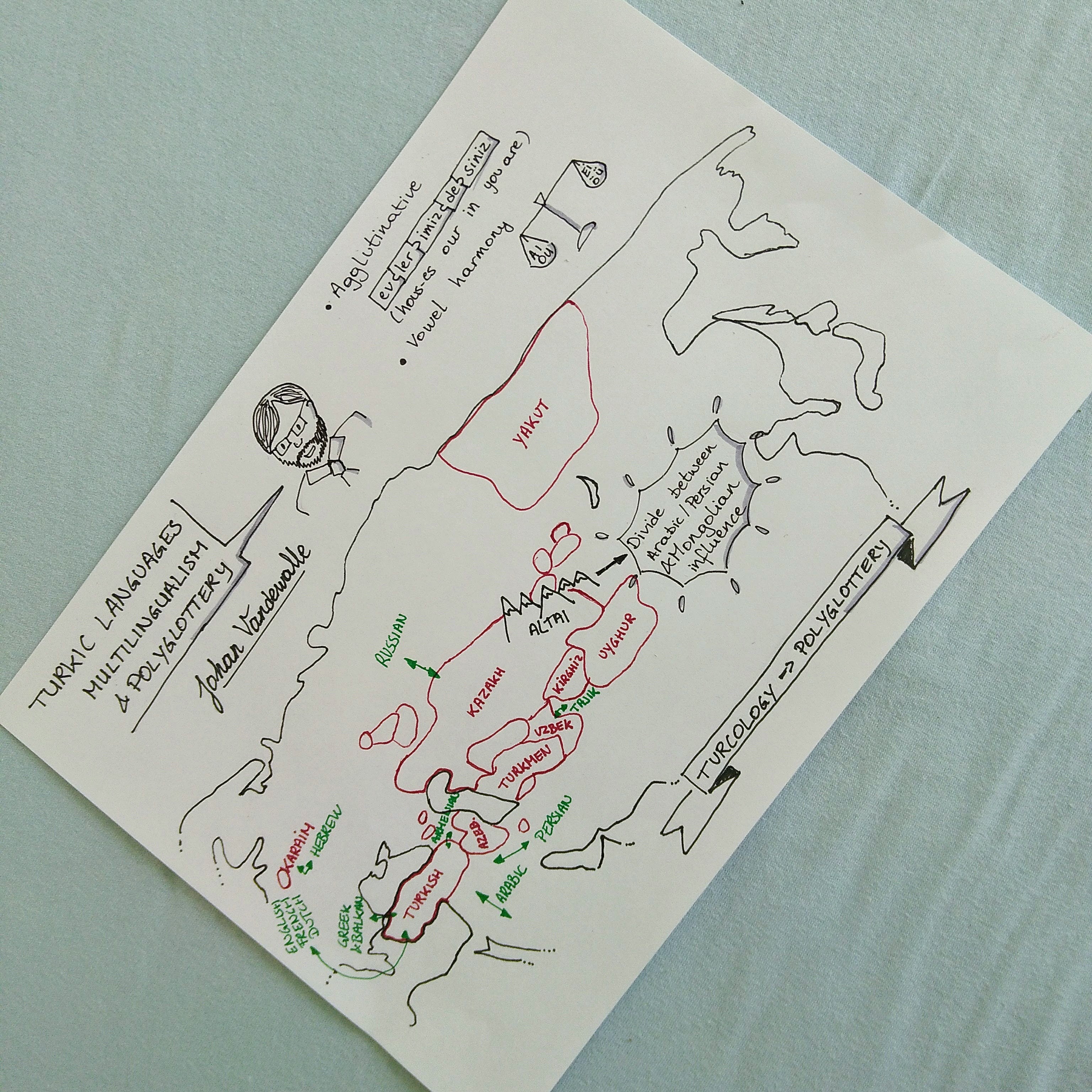

Throughout the centuries, Turkic languages (41 in number according to Ethnologue) have been spoken over a vast, nearly continuous area, stretching out from the Balkans in the west to Siberia and the Chinese Wall in the east. Recently, the Turkish diaspora, with more than 4 million people of Turkish origin in Western Europe, was added to this area. This broad dispersion of the Turkic languages has led to numerous multilingual situations, in which Turkic languages came into contact with genetically and typologically quite different language families: Indo-European (Slavic, Albanian, Greek, Iranian, Armenian), Semitic (Arabic), Sino-Tibetan, Mongolic and Tungusic. This contact often yielded linguistically fascinating results in both the Turkic and the non-Turkic languages. All of this makes turcology a very demanding study as to the required knowledge of languages by researchers. It is therefore not surprising that many of the well known turcologists are or have been polyglots. The aim of this talk is to give an overview of this huge variety of multilingual situations, demonstrating with clear examples the linguistic effects of the language contact and discussing the requirements as to the knowledge of foreign languages by researchers. Finally, a number of famous turcologists will pass in review and their knowledge of foreign languages will be described.